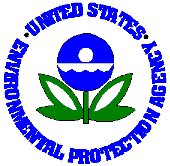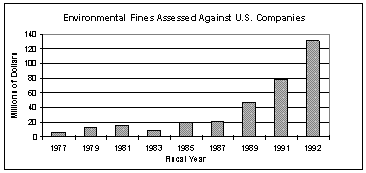|
|
|
|
As of January 21, 1996, EPA will not seek gravity-based penalties (i.e. penalties not related to economic benefits of not complying) and will generally not recommend criminal prosecution against the regulated entity for violations found through voluntary environmental audits of efforts reflecting due diligence. The regulated entity must promptly disclose and correct the violation in a timely way. EPA will reduce gravity-based penalties by 75% for violations that are voluntarily discovered, and that are promptly disclosed and corrected, even if they are not found through a formal audit or a due-diligence process. The new policy restates EPA's long-standing policy and practice of refraining from routine requests for environmental audit reports to trigger enforcement investigations.
The latest version of the EPA policy includes safeguards that the agency considers necessary to deter irresponsible behavior and to protect the public and the environment. Besides prompt disclosure and speedy correction, the policy requires companies to act to prevent recurrence of violations, and to remedy any environmental harm that may have occurred. Repeated violations of those resulting in actual harm or imminent and substantial endangerment are not eligible for relief. EPA stresses that companies will not be allowed to gain an economic advantage over their competitors by "delaying their investment in compliance." You may still be criminally liable for violations that result from conscious disregard of environmental obligations under the law.
EPA published the policy as a result of an assessment that began in July 1994 to find the best ways to encourage companies to examine and control their own environmental compliance while preserving the agency's enforcement powers and options. Several states had already adopted laws barring the results of environmental compliance audits from being introduced as evidence in court and preventing state enforcement agencies from charging regulated organizations with violations discovered through self-auditing. The incentives, conditions and exceptions announced by EPA reflect input from the Department of Justice, state attorneys general and local prosecutors, state environmental agencies, the regulated community and public interest organizations. EPA will conduct a study within three years to determine the effectiveness of the new policy.
"Due diligence" for the purposes of the self-policing and disclosure policy consists of the regulated entity's systematic efforts, appropriate to the size and nature of its business. to prevent, detect and correct violations through all of the following:
Compliance policies, standards, and procedures. Identifying how employees and agents meet the requirements of laws. Regulations, permits, and/or any other sources of authority. Assigning overall responsibility for overseeing compliance with policies, standards, and procedures; and assigning specific responsibility for assuring compliance at each facility or operation. Mechanisms for systematically assuring that compliance policies standards and procedures are being carried out, including monitoring and auditing systems and means for repotting violations of environmental requirements without fear of retaliation. Efforts to communicate effectively the regulated entity's standards and procedures to all employees and other agents. Incentives to managers and employees to perform in accordance with compliance policies, standards and procedures, including consistent enforcement and appropriate discipline. Procedures for prompt and appropriate correction of violations and program modifications to prevent further violations.
As the environmental enforcement arm of the United States Government, the EPA has sent its representative(s) to ISO and ANSI for input in the generation of the ISO 14000 series. In addition to the reduction in gravity-based penalties, the EPA is encouraging the use of ISO 14000 and other EMS Strategies by: Environmental Leadership Program Green Lights Program Excel Program 33/50 EPA Voluntary Standards Network Common Sense Initiative Envirosense
|
|

